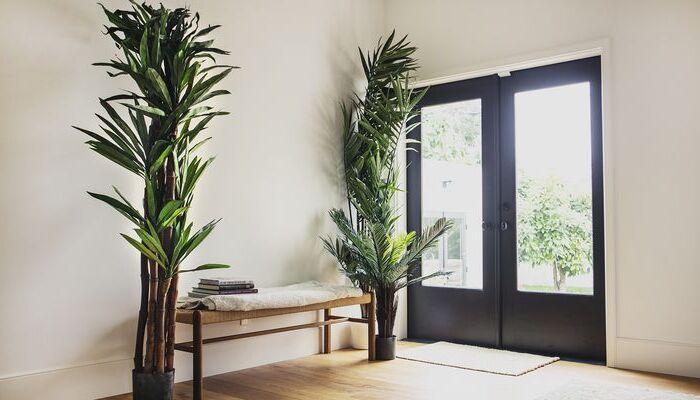There are a lot of factors to consider when looking for a new air filter for your home. Size, type, and MERV rating are just a few of the important considerations. This guide will help you determine which fitting air filter is best for your needs.
Contents
- 1. Consider the Size of Your Home
- 2. Factor in the Environment in Which Your Home Is Located
- 3. Consider the Type of Air Filter You Need
- 4. Factor in the Quality of the Air Filter
- 5. Consider the Type of Air Conditioning System You Have
- 6. Choose a Filter with the Right MERV Rating
- 7. Consider the Cost of the Air Filter
- Conclusion
1. Consider the Size of Your Home
The size of your home is the first thing you should consider when searching for the best air filter. After all, you don’t want to buy an air filter that’s too small or too large for your space. The larger your home, the more square footage you will need to be covered. The number of rooms and levels in your home will also impact the size of what you need. If your home is small, you may get away with a smaller filter, but if your home is large, you will need a bigger filter to get the job done.
2. Factor in the Environment in Which Your Home Is Located
In addition to size, you also want to consider the environment in which your home is located and the specific needs and protection of your home. If you live in an area with a lot of dust or pollen, you’ll need a filter to trap those particles. If you have pets, you’ll also need to choose a filter to remove pet dander from the air. Suffering from allergies? You may want to opt for a filter with an electrostatic charge that can help attract and capture these contaminants.
3. Consider the Type of Air Filter You Need
There are different types of air filters on the market, so it is important to know the type of filter you need before making a purchase. The most common filters are mechanical, activated carbon, and ozone generators. Each type of filter has its strengths and weaknesses, so it is important to choose the right one for your needs.
For example, mechanical filters are great for trapping dust and pollen but are not as effective at removing odors and gasses. Activated carbon filters are the best for removing odors and gasses, but they can’t trap as much dust and pollen. Ozone generators are the most powerful type, but they can harm humans if used improperly.
4. Factor in the Quality of the Air Filter
When choosing an air filter, it is important to consider the quality. The better the quality, the better it will be able to remove contaminants from your home’s air. There are a few things that can help you determine the quality.
First, check how often the filter needs replacement; a good quality filter will need to be replaced less often than a poor air filter. Also, check the percentage of particles the filter can remove from your home’s air; the higher it is, the better the quality of the air filter. Finally, check to see how long the warranty is. A longer warranty usually means that the manufacturer has more faith in its product’s ability to perform well over time.
5. Consider the Type of Air Conditioning System You Have
The air conditioning system will determine the size of fitting air filter that you need. For example, a central air conditioner will require a larger filter than a window unit. In addition, you will need to ensure that the filter you purchase is rated for the specific square footage of your home. If you’re unsure what size you need, consult your owner’s manual or the manufacturer of your air conditioning system manufacturer.
6. Choose a Filter with the Right MERV Rating
When choosing, you want to ensure it has a high enough MERV rating to trap the contaminants you’re concerned about. The MERV rating measures an air filter’s ability to remove particles from the air. The higher the MERV rating, the more effective the filter trapping allergens and airborne contaminants.
For example, a MERV 8 filter will trap most dust, pollen, and mold spores, but it won’t be as effective at trapping smoke or viruses. A MERV 13 filter will trap almost all airborne contaminants, including smoke and viruses. 24x36x1 filters are the most common size and are available in a range of MERV ratings, from MERV 6 (basic) to MERV 13 (high-efficiency). If you have asthma or other allergies, you’ll want to choose a 24x36x1 filter with a high MERV rating.
7. Consider the Cost of the Air Filter

Fitting Air Filter varies in price depending on their size, quality, and features. You can find basic mechanical air filters for as little as $5, but they will need replacements more often than a more expensive activated carbon filter. Higher-end HEPA filters can cost $100 or more, but they will last longer and better filter your home’s air. When choosing an air filter, it’s critical to find one that fits your budget and meets your needs.
Conclusion
Finding the best fitting air filter for your home does not have to be a daunting task. By following the outlined tips, you can be sure to find an air filter that will work effectively for your specific needs. Remember to consider the size of your home, the type of climate you live in, and your budget when making your decision. With a little research, you can find an air filter that will help keep your home clean and comfortable all year.

